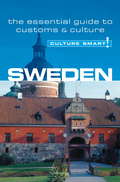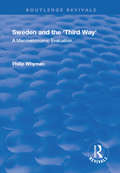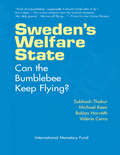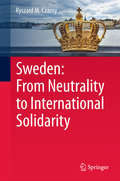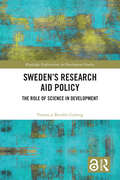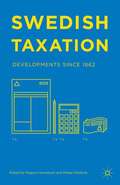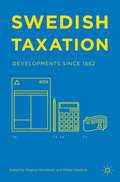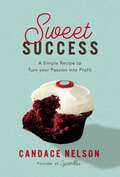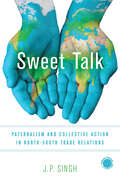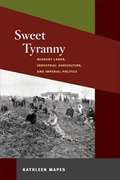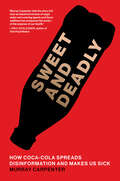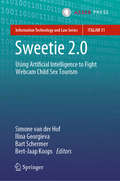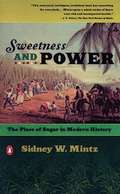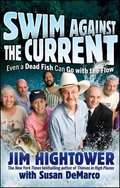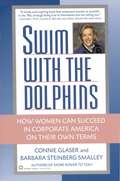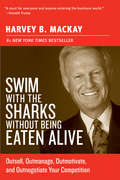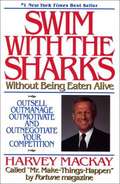- Table View
- List View
Sweden - Culture Smart!
by Charlotte DewittCulture Smart! provides essential information on attitudes, beliefs and behavior in different countries, ensuring that you arrive at your destination aware of basic manners, common courtesies, and sensitive issues. These concise guides tell you what to expect, how to behave, and how to establish a rapport with your hosts. This inside knowledge will enable you to steer clear of embarrassing gaffes and mistakes, feel confident in unfamiliar situations, and develop trust, friendships, and successful business relationships.Culture Smart! offers illuminating insights into the culture and society of a particular country. It will help you to turn your visit-whether on business or for pleasure-into a memorable and enriching experience. Contents include* customs, values, and traditions* historical, religious, and political background* life at home* leisure, social, and cultural life* eating and drinking* do's, don'ts, and taboos* business practices* communication, spoken and unspoken"Culture Smart has come to the rescue of hapless travellers." Sunday Times Travel"... the perfect introduction to the weird, wonderful and downright odd quirks and customs of various countries." Global Travel"...full of fascinating-as well as common-sense-tips to help you avoid embarrassing faux pas." Observer"...as useful as they are entertaining." Easyjet Magazine"...offer glimpses into the psyche of a faraway world." New York Times
Sweden and the 'Third Way': A Macroeconomic Evaluation (Routledge Revivals Ser.)
by Philip WhymanThis title was first published in 2003. The creation of a 'Third Way' between unfettered capitalism and old-style Keynesian-corporatist forms of social democracy has become the driving force behind the policy programmes of many left-of-centre political parties in the industrialised nations of the world today. Sweden and the 'Third Way' critically evaluates this 'new' social democracy by examining the profound shift in Swedish political economy from being the prototype old-style social democracy towards the 'Third Way' synthesis of neo-liberalism and elements of traditional social democracy. Philip Whyman evaluates internal and external challenges to Swedish macroeconomic policy - including globalisation, European integration, post-Fordist technological change and the relative empowerment of capital - to discover the extent to which national economic autonomy is constrained. Furthermore, he considers the plausibility of revising the core elements of the traditional 'Swedish Model' as an alternative to the prevailing macroeconomic platform.
Sweden's Welfare State
by Subhash Thakur Michael Keen Balázs Horváth Valerie CerraThe Swedish Prime Minister, Gèran Persson, has used the analogy of a bumblebee to describe the success of the Swedish welfare state, saying "Think of a bumblebee. With its overly heavy body and little wings, supposedly it should not be able to fly, but it does. " Drawing on its continued surveillance of the economic policies of IMF member states, this book examines the Swedish model and considers both its achievements and the challenges facing it in the 21st century. It also seeks to draw lessons from the Swedish experience for other countries that face similar challenges from developments in globalisation and demographics.
Sweden: From Neutrality to International Solidarity
by Ryszard M. CzarnyThis book presents the legal and political factors determining international relations, including the processes of integration in all their complexity. The overall structure of the book, together with the composition of its separate chapters, allows for some general assumptions, identifying the main tendencies and placing them in a contemporary social context as well as establishing their relations with the practices of today. The content is a compendium of basic information and data related to the international processes which occur within specific formal, legal and political frames. The book is divided into five parts featuring not only deep historical context but most of all presenting current information and analyses of the last few years. Presented against the background and within the context of the Kingdom of Sweden’s political system and its international environment, the book brings into the foreground issues of particular importance for Sweden’s continuing European integration process and describes its response to the developments in the international situation.
Sweden: Selected Issues (Imf Staff Country Reports #Country Report No. 14/262)
by International Monetary Fund. European Dept.A report from the International Monetary Fund.
Sweden: Selected Issues (Imf Staff Country Reports #Country Report No. 14/262)
by International Monetary Fund. European Dept.A report from the International Monetary Fund.
Sweden’s Research Aid Policy: The Role of Science in Development (Routledge Explorations in Development Studies)
by Veronica Brodén GybergScience and technology have long been considered key for development, problem solving and education in low-income countries, and Sweden has been at the forefront of efforts in this area, as one of the first countries to formalise research aid. This book analyses how The Swedish Agency for Research Cooperation with Developing Countries (SAREC) and the Swedish International Development Cooperation Agency (Sida) have worked to promote science in low-income countries. In doing so, the book tackles challenging questions around whose knowledges and capacities count, who sets the research agenda, how knowledge resources are distributed, and how complex donor-recipient relationships serve both to address and inflate these issues. Through a discursive analysis of policy material and interviews with former directors at Sarec and Sida as well as other key persons, the book traces how perceptions of the relationship between research and development have shifted over the last five decades. Pointing to why long-term collaboration is necessary in order to contribute significantly to capacity building, as well as highlighting more general tensions relating to the production of knowledge, Sweden’s Research Aid Policy: The Role of Science in Development will be a valuable resource for advanced students and researchers of foreign aid, development cooperation, and the history of science and technology.
Sweden’s Research Aid Policy: The Role of Science in Development (Routledge Explorations in Development Studies)
by Veronica Brodén GybergScience and technology have long been considered key for development, problem solving and education in low-income countries, and Sweden has been at the forefront of efforts in this area, as one of the first countries to formalize research aid.This book analyses how the Swedish Agency for Research Cooperation with Developing Countries (Sarec) and the Swedish International Development Cooperation Agency (Sida) have worked to promote science in low-income countries. In doing so, the book tackles challenging questions around whose knowledges and capacities count, who sets the research agenda, how knowledge resources are distributed, and how complex donor–recipient relationships serve both to address and inflate these issues. Through a discursive analysis of policy material and interviews with former directors at Sarec and Sida as well as other key persons, the book traces how perceptions of the relationship between research and development have shifted over the last five decades.Pointing to why long-term collaboration is necessary in order to contribute significantly to capacity building, as well as highlighting more general tensions relating to the production of knowledge, Sweden’s Research Aid Policy: The Role of Science in Development will be a valuable resource for advanced students and researchers of foreign aid, development cooperation and the history of science and technology.
Swedish Economic Thought: Explorations and Advances
by Lars JonungThe impact of Swedish economists on the development of modern economic analysis has been profound. This volume contains twelve essays dealing with various aspects of the development of economics and economic thought from the mid 18th century to the middle of the 20th century. Most of the essays cover the golden age of Swedish economics, the early decades of the 20th century, and deal with such figures as Knut Wicksell, Gustav Cassel, Eli Heckscher, Bertil Ohlin, Erik Lindahl and Erik Lundberg.The book includes a chapter on an unpublished manuscript of Knut Wicksell's which is reproduced in English for the first time
Swedish Economists in the 1930s Debate on Economic Planning (Palgrave Studies in Economic History)
by Benny CarlsonThe 1930s, characterised by repercussions from World War I and the Great Depression, was an era of populism, nationalism, protectionism, government intervention and attempts to create planned economies. The perceived need for economic planning emerged in Sweden in part due to the increasing political strength of the Social Democrats and their evolution from a party hampered by Marxist fatalism to a pragmatic mass movement. The Swedish debate continued beyond World War II and is still relevant to today’s economic crises, which have resulted in a demand for action coming from below (populism) and above (elitism).Carlson surveys the arguments for and against economic planning as they were put forward by leading Swedish economists in the 1930s, with a focus on the thoughts of Gustav Cassel, Eli Heckscher, Gösta Bagge, Gunnar Myrdal and Bertil Ohlin, among others. In so doing he provides a timely exploration of the debate on the necessary and desirable extent of state intervention in market economies.
Swedish Taxation: Developments since 1862
by Magnus Henrekson Mikael StenkulaBy taking the long view on the evolution of this country's tax policies through the past few decades, Henrekson and Stenkula explain how Sweden developed the highest tax-to-GDP ratio in the world, until the beginning of the 2000s.
Sweet Deal -- Industry Self-Regulation of Breakfast Cereal Advertising To Children
by Felix Oberholzer-Gee Dennis Yao Lizzie Gomez Britta KelleyIn response to growing concern about childhood obesity, in February 2006 the Council of Better Business Bureaus (CBBB) announced an initiative to examine its self-regulatory program on children's advertising. The existing program was a voluntary cross-industry program that monitored advertisements directed to children. However, the program did not stipulate which products companies could or could not advertise to children. In response to calls for action on childhood obesity, the CBBB was considering a number of approaches, including revising children's advertising guidelines, but staying within the basic parameters of the current program. Alternatively, the CBBB was considering launching a new self-regulatory program in which participating firms would constrain the amount of their children-targeted advertising of less-nutritious products. It was widely believed that children's food advertising was a major contributor to childhood obesity, and within the food-advertising category, considerable attention was directed to advertisements of children's presweetened cereals. The major ready-to-eat (RTE) cereal manufacturers, such as Kellogg's and General Mills, were supporters of the CBBB self-regulation programs and were invited to participate in the CBBB initiative. Each manufacturer had been taking different individual approaches to address the concerns of childhood obesity. The case discussion focuses on what actions General Mills should take with respect to the CBBB initiative and on its own.
Sweet Success: A Simple Recipe to Turn your Passion into Profit
by Candace NelsonLEARN THE RECIPE FOR STARTING A SUCCESSFUL BUSINESSFor the first time ever, founder of Sprinkles cupcakes, Candace Nelson, is sharing the recipe for success in her new book, Sweet Success. She will walk you through the steps she took to build a globally beloved brand, so you can do it too. Although she deals in frosting, there&’s no sugarcoating here. Candace pushes back the kitchen door to reveal mistakes, misses, and lessons learned the hard way. Readers will learn how to:Obtain the key ingredients to any successful businessCraft the mindset of an entrepreneurLearn the secret recipe for packaging a product for profitTurn kitchen experiments into top selling productsCultivate a community of brand evangelistsStep into a personal brand to amplify the businessKnow where to put marketing dollars most effectivelyAnd much more. In a time of unprecedented disruption and innovation, people are rethinking career and professional purpose. It&’s never been a better time to start a business. Sweet Success dispels the myth that entrepreneurship is reserved for an elite few and is a must-read for anyone with a passion needing a place to start or a push along the way.At a career crossroads, instead of going to business school like her peers, Candace Nelson reflected on what she really wanted to do—and did what nobody, including Candace herself, would have expected. She poured her passion and life savings into creating the world&’s first cupcake bakery. Today, Sprinkles Cupcakes and its Cupcake ATMs have become a globally recognized brand, celebration mainstay and inspiration for entrepreneurs everywhere.
Sweet Talk: Paternalism and Collective Action in North-South Trade Relations
by J. P. SinghDeveloped nations strive to create the impression that their hearts and pockets bleed for the developing world. Yet, the global North continues to offer unfavorable trade terms to the global South. Truly fair trade would make reciprocal concessions to developing countries while allowing them to better their own positions. However, five hundred years of colonial racism and post-colonial paternalism have undermined trade negotiations. While urging developing countries to participate in trade, the North offers empty deals to "partners" that it regards as unequal. Using a mixed-methods approach, J. P. Singh exposes the actual position beneath the North's image of benevolence and empathy: either join in the type of trade that developed countries offer, or be cast aside as obstreperous and unwilling. Singh reveals how the global North ultimately bars developing nations from flourishing. His findings chart a path forward, showing that developing nations can garner favorable concessions by drawing on unique strengths and through collective advocacy. Sweet Talk offers a provocative rethinking of how far our international relations have come and how far we still have to go.
Sweet Tyranny: Migrant Labor, Industrial Agriculture, and Imperial Politics (The Working Class in American History)
by Kathleen MapesIn this innovative grassroots to global study, Kathleen Mapes explores how the sugar beet industry transformed the rural Midwest by introducing large factories, contract farming, and foreign migrant labor. Identifying rural areas as centers for modern American industrialism, Mapes contributes to an ongoing reorientation of labor history from urban factory workers to rural migrant workers. She engages with a full range of individuals, including Midwestern family farmers, industrialists, Eastern European and Mexican immigrants, child laborers, rural reformers, Washington politicos, and colonial interests. Engagingly written, Sweet Tyranny demonstrates that capitalism was not solely a force from above but was influenced by the people below who defended their interests in an ever-expanding imperialist market.
Sweet and Deadly: How Coca-Cola Spreads Disinformation and Makes Us Sick
by Murray CarpenterHow Coca-Cola makes Americans sick—and makes sure we don&’t know it.If we knew that Coca-Cola was among the deadliest products in our diet, would we continue drinking it in such great quantities? The Coca-Cola Company has gone to extraordinary lengths to make sure we don&’t find out, as this damning exposé makes patently clear. Marshaling the findings of extensive research and deep investigative reporting, Murray Carpenter describes in Sweet and Deadly the damage Coke does to America&’s health—and the remarkable campaign of disinformation conducted by the company to keep consumers in the dark.Sugar-sweetened beverages are the single item in the American diet that most contributes to the epidemic of chronic disease—in particular, obesity, type 2 diabetes, and cardiovascular disease—and Coca-Cola is America&’s favorite sugar-sweetened beverage, by far. Carpenter details how the Coca-Cola corporation&’s sophisticated shadow network has masterfully spread disinformation for decades to hide the health risks of its product from consumers—risks disproportionately borne by Black, brown, and low-income communities. Working from a playbook of obfuscation and pseudoscience that has worked well for other harmful products, from tobacco and trans fats to opioids, Coca-Cola has managed to maintain an aura of goodness and happiness. This eye-opening book finally and fully reveals the truth behind that aura.
SweetWater
by H. Kent Bowen Thomas D. EverettFocuses on developing a promising idea into a viable product design by considering customer needs early in the design process. Following an Alaskan fishing trip, Sandy Platter, a computer peripherals engineer, has a new idea for a portable water-filter device for use by outdoor recreationalists.
Sweetie 2.0: Using Artificial Intelligence to Fight Webcam Child Sex Tourism (Information Technology and Law Series #31)
by Simone van der Hof Bert-Jaap Koops Bart Schermer Ilina GeorgievaThis book centres on Webcam Child Sex Tourism and the Sweetie Project initiated by the children’s rights organization Terre des Hommes in 2013 in response to the exponential increase of online child abuse. Webcam child sex tourism is a growing international problem, which not only encourages the abuse and sexual exploitation of children and provides easy access to child-abuse images, but which is also a crime involving a relatively low risk for offenders as live-streamed webcam performances leave few traces that law enforcement can use. Moreover, webcam child sex tourism often has a cross-border character, which leads to jurisdictional conflicts and makes it even harder to obtain evidence, launch investigations or prosecute suspects.Terre des Hommes set out to actively tackle webcam child sex tourism by employing a virtual 10-year old Philippine girl named Sweetie, a so-called chatbot, to identify offenders in chatrooms. Sweetie 1.0 could be deployed only if police officers participated in chats, and thus was limited in dealing with the large number of offenders. With this in mind, a more pro-active and preventive approach was adopted to tackle the issue. Sweetie 2.0 was developed with an automated chat function to track, identify and deter individuals using the internet to sexually abuse children. Using chatbots allows the monitoring of larger parts of the internet to locate and identify (potential) offenders, and to send them messages to warn of the legal consequences should they proceed further.But using artificial intelligence raises serious legal questions. For instance, is sexually interacting with a virtual child actually a criminal offence? How do rules of criminal procedure apply to Sweetie as investigative software? Does using Sweetie 2.0 constitute entrapment? This book, the outcome of a comparative law research initiative by Leiden University’s Center for Law and Digital Technologies (eLaw) and the Tilburg Institute for Law, Technology, and Society (TILT), addresses the application of substantive criminal law and criminal procedure to Sweetie 2.0 within various jurisdictions around the world.This book is especially relevant for legislators and policy-makers, legal practitioners in criminal law, and all lawyers and academics interested in internet-related sexual offences and in Artificial Intelligence and law.Professor Simone van der Hof is General Director of Research at t he Center for Law and Digital Technologies (eLaw) of the Leiden Law School at Leiden University, The Netherlands. Ilina Georgieva, LL.M., is a PhD researcher at the Faculty of Governance and Global Affairs at Leiden University, Bart Schermer is an associate professor at the Center for Law and Digital Technologies (eLaw) of the Leiden Law School, and Professor Bert-Jaap Koops is Professor of Regulation and Technology at the Tilburg Institute for Law, Technology, and Society (TILT), Tilburg University, The Netherlands.
Sweetness and Power: The Place of Sugar in Modern History
by Sidney W. Mintz"Shows how the intelligent analysis of the history of a single commodity can be used to pry open the history of an entire world of social relationships and human behavior."-The New York Review of Books.
Swim Against the Current: Even a Dead Fish Can Go with the Flow
by Jim Hightower Susan DemarcoHightower is most often called a populist, but he just shrugs it off and starts pointing out features of the real world that the rich and powerful would rather people did not notice. Here he and co-conspirator Susan DeMarco present vignettes of how once-ordinary people are fighting corruption and injustice in business, politics, and life, often by providing an alternative to the mainstream. Annotation ©2008 Book News, Inc., Portland, OR (booknews.com)
Swim with the Dolphins: How Women can Succeed in Corporate America on their Own Terms
by Connie Glaser Barbara Steinberg SmalleyBased on interviews with female managers, and featuring helpful charts and lists, this intelligent blueprint for managerial achievement presents new techniques for success in corporate America that rely on traditional "feminine" strengths--nurturing, caring, motivating and other characteristics that empower managers and help employees thrive.
Swim with the Sharks Without Being Eaten Alive
by Harvey B. MackayThis straight-from-the-hip handbook by bestselling author and self-made millionaire Harvey Mackay spells out the path to success for readers everywhere. They will learn how to: Outsell by getting appointments with people who absolutely, positively do not want to see you, and then making them glad they said "yes!" Outmanage by arming yourself with information on prospects, customers, and competitors that the CIA would envy - using a system called the "Mackay 66." Outmotivate by using his insights to help yourself or your kids join the ranks of Amercia's one million millionaires. Outnegotiate by knowing when to "smile and say no" and when to "send in the clones." This one-of-a-kind book by a businessman who's seen it all and done it all has sold almost 2 million copies, and is the essential roadmap for everyone on the path to success.
Swim with the Sharks Without Being Eaten Alive
by Harvey B. MackayThis straight-from-the-hip handbook by bestselling author and self-made millionaire Harvey Mackay spells out the path to success for readers everywhere. They will learn how to: Outsell by getting appointments with people who absolutely, positively do not want to see you, and then making them glad they said "yes!"Outmanage by arming yourself with information on prospects, customers, and competitors that the CIA would envy - using a system called the "Mackay 66."Outmotivate by using his insights to help yourself or your kids join the ranks of Amercia's one million millionaires.Outnegotiate by knowing when to "smile and say no" and when to "send in the clones."This one-of-a-kind book by a businessman who's seen it all and done it all has sold almost 2 million copies, and is the essential roadmap for everyone on the path to success.
Swim with the Sharks without Being Eaten Alive
by Harvey MackayMackay offers dozens of tips on how to outsell, outmanage, outmotivate, and outnegotiate other people in any field of human endeavor.
